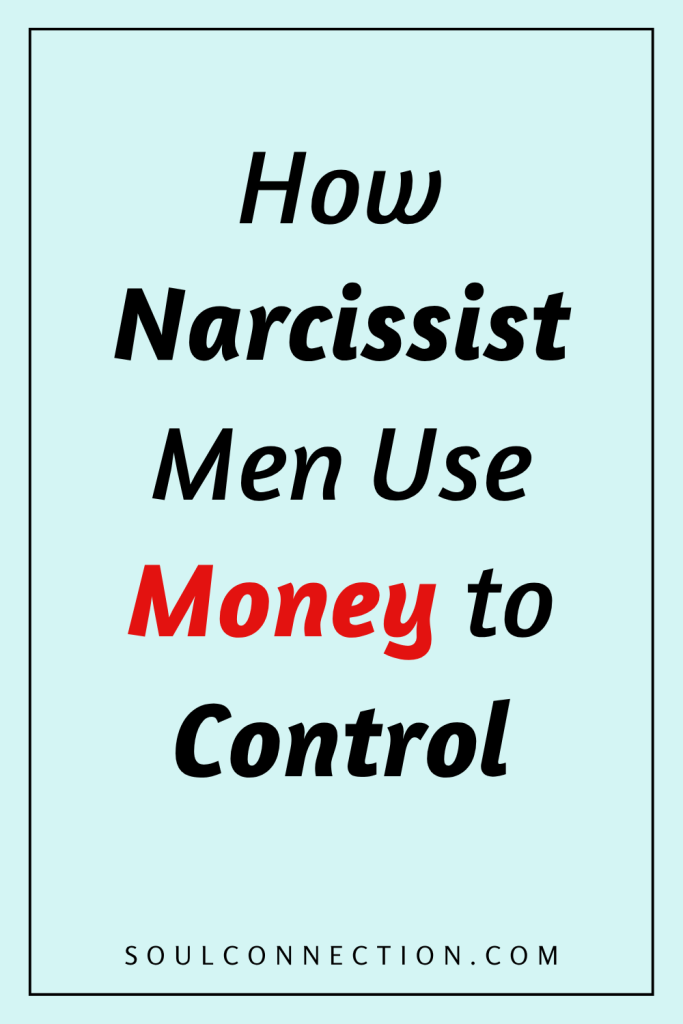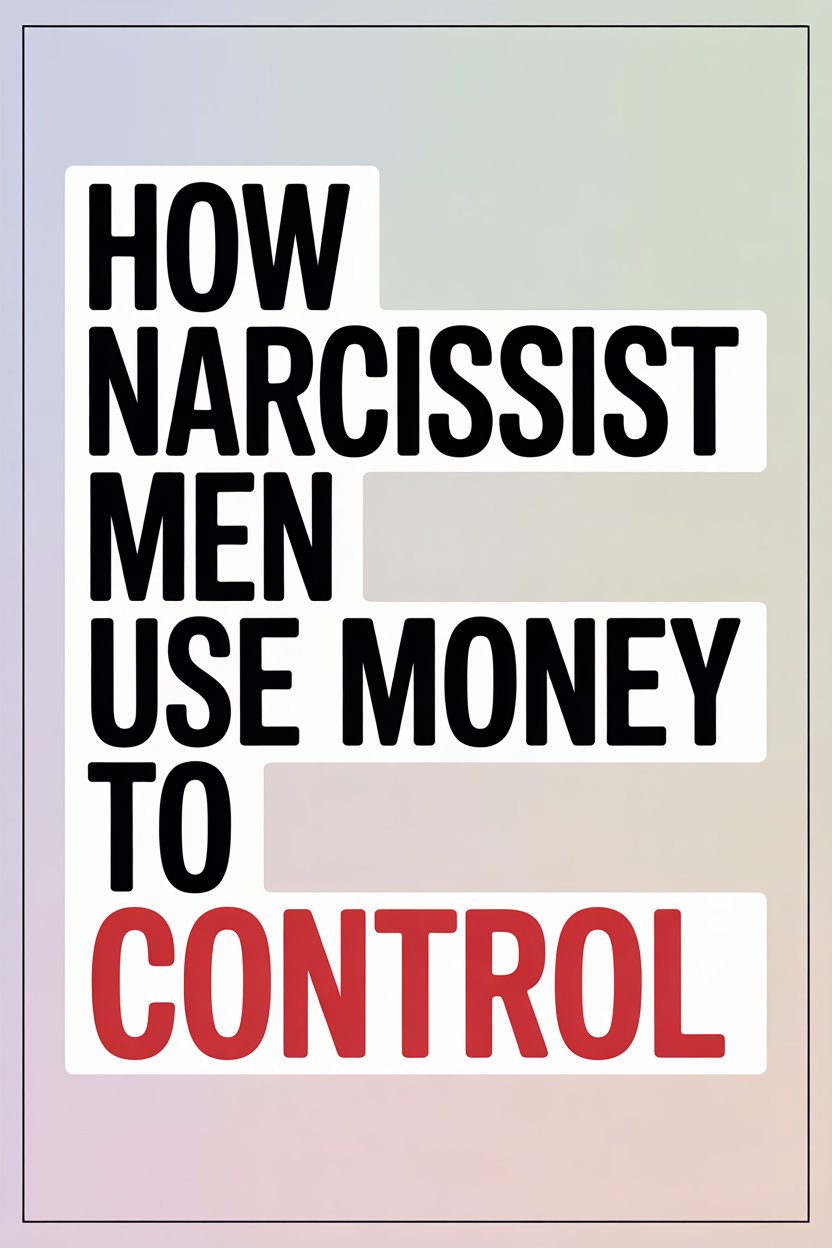Ever notice how discussions about narcissists tend to focus on grand gestures, marathon monologues, and the uncanny ability to make your birthday all about them?
The financial sidekick to that ego rarely gets enough airtime. Yet, for many, the bank account is where narcissistic control quietly but fiercely thrives.
It’s time to call it out. Here’s how money becomes a narcissist’s favorite leash—and what you can do when the purse strings are in someone else’s hands.
The False Generosity Trap
Money, for a narcissist, isn’t just about paying bills or picking up pizza. It’s about stage-managing perceptions.
Suddenly, lavish gifts appear out of nowhere—a designer bag, a surprise weekend getaway, maybe even a new car with a ribbon on the hood. Feels like a rom-com, until you realize every present comes with an invisible price tag.
Those “just because” gifts? They’re not really for you. They’re for the audience. Boasting rights. Building up an unspoken ledger that will be cashed in, usually when you least expect it.
If you ever try to assert independence or, heaven forbid, set a boundary, out comes the receipt book. “Remember that time I paid your rent?” (Yes, how could you forget? It comes up every argument.)
The generosity isn’t about love. It’s about power—reminding you who’s in charge.
The Purse-String Puppeteer
Control isn’t always about splashing cash. Sometimes it’s about withholding it.
A narcissist will often position themselves as the financial gatekeeper, whether they actually earn more or simply act as though they do. This can look like:
- Insisting on one shared account “for transparency,” then monitoring every latte and lipstick.
- Making you ask for money, as if you’re 12 and need lunch money for a field trip.
- Keeping you in the dark about family finances, investments, or debts.
Money morphs from a practical tool into an instrument of dependency. You’re subtly (or not so subtly) nudged into believing you can’t survive without their approval—and their wallet.
Financial Gaslighting: Making You Doubt Your Reality
Some narcissists can’t resist a bit of psychological gymnastics. Financial gaslighting is a particular specialty.
Maybe your partner claims you’re “bad with money” (even though you single-handedly budgeted a wedding on the price of a used Toyota). Or you’re told you’re “too emotional” about finances, so they’ll just handle it. How convenient.
Receipts vanish. Bank statements are “misplaced.” Any concern you raise is met with an eye roll and a patronizing, “Relax, I’ve got this.”
Before long, you start to wonder if you really are as irresponsible as they claim—or if you’re imagining things. Spoiler: You’re not.
Sabotaging Your Financial Independence
A narcissistic partner isn’t keen on you having your own financial foothold. After all, independence is the enemy of control. Subtle sabotage is common and might show up as:
- Discouraging your career ambitions or talking down your job (“You work so hard for so little, why bother?”).
- Dismissing your side hustle, even as it starts to take off.
- “Forgetting” to pay bills that are in your name, wrecking your credit.
- Guilt-tripping you for wanting your own account: “Don’t you trust me?”
The goal is simple: keep you tethered, preferably with a short enough leash that any big leap—like moving out or making a major purchase—feels impossible.
Using Money to Buy Silence or Compliance
Disagreements in a healthy relationship are about compromise. With a narcissist, it’s more like negotiating a hostage release. Money becomes a go-to tool for buying your silence or compliance.
Arguing about something important? Suddenly, they’re paying for a dream vacation or offering to cover your student loans (all you have to do is drop the issue).
Don’t want to play along? Prepare for the financial faucet to be turned off.
It’s not generosity. It’s hush money.
Shaming and Comparing
Pride is a fragile thing in the world of narcissism, but weaponizing shame is their Olympic sport. If you make less money, expect regular reminders—sometimes joking, sometimes not.
“You spent how much at the grocery store? I’d never waste money like that.”
“My ex made way more than you, but she didn’t spend it all on shoes.”
It’s exhausting. And it’s meant to be.
Any financial “fault” becomes an excuse for belittling, which leads you to second-guess not just your choices, but your own worth.
The Sudden Switch: Love Bombing to Financial Punishment
Narcissists are known for their love bombing—those heady, over-the-top early days when you feel like you’ve won the romance lottery.
But as soon as you push back, the credit card magic dries up.
No more dinners out. No more “treat yourself” days. Maybe they start withholding shared funds or conveniently forget to contribute to bills.
This seesaw isn’t random. It’s a tactic to keep you off balance and craving their approval (and, let’s be honest, groceries).
Isolation by Design
Financial control isn’t just about dollars—it’s about cutting you off from your support system.
Maybe you stop seeing friends because you “can’t afford it.” Maybe you skip family trips because “the budget’s tight” (even when it’s mysteriously not).
If you rely on the narcissist for every penny, it gets harder to reach out for help or hatch an escape plan. That “can’t leave, can’t breathe” feeling isn’t an accident.
What Can You Do Tonight?
Spotting these patterns is the first step, but knowledge alone won’t pay the power bill. Time for some practical moves—right now, with or without a dramatic confrontation.
Start Tracking Your Own Money
Even if you have limited access, start keeping tabs. Jot down expenses, snap photos of receipts, open your own email account for digital statements.
The goal is to get a clear picture of what’s coming in and going out—no matter how small.
Open a Secret Stash
If you’re safe to do so, start squirreling away a little cash. A friend’s house, a hidden envelope, a savings account only you know about—pick what works. Your own “rainy day” fund isn’t sneaky; it’s survival.
Phone a (Trusted) Friend
Isolation is the narcissist’s favorite trick. Call someone you trust—a sibling, old friend, or even a financial counselor. Spill the beans about your situation. There’s zero shame in needing backup.
Learn Your Legal Rights
Every country (and sometimes every province or state) has its own rules about shared assets, marital property, and financial abuse.
A quick online search or call to a legal aid office can arm you with info that makes the “gatekeeper” act a little less intimidating.
Say No to the Shame Game
Remind yourself: Needing money, or wanting your own, isn’t weakness. It’s healthy. And wanting to understand your own finances is not ungrateful or “paranoid.” It’s adulting, plain and simple.
Turning the Tables
Getting out from under a narcissist’s financial thumb isn’t easy. It can be terrifying, logistically complicated, and—let’s be real—emotionally messy.
But the minute you start taking back even a sliver of control, something magical happens. The fear shrinks. The guilt wobbles. The “I can’t” starts to sound more like “maybe I can.”
Money will always matter. But who controls it doesn’t have to define you, your worth, or your future.
Turns out, the best thing you can buy is your own freedom. Even if it starts with pocket change.


